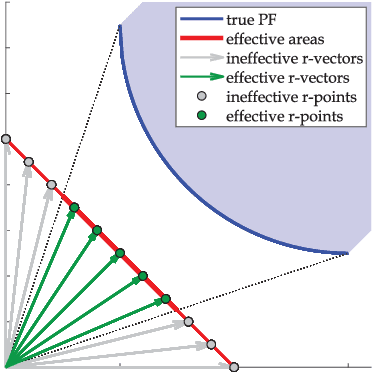A Many-Objective Evolutionary Algorithm with Two Interacting Processes: Cascade Clustering and Reference Point Incremental Learning
Paper and Code
Oct 04, 2018



Researches have shown difficulties in obtaining proximity while maintaining diversity for solving many-objective optimization problems (MaOPs). The complexities of the true Pareto Front (PF) pose serious challenges for the reference vector based algorithms for their insufficient adaptability to the characteristics of the true PF with no priori. This paper proposes a many-objective optimization Algorithm with two Interacting processes: cascade Clustering and reference point incremental Learning (CLIA). In the population selection process based on cascade clustering, using the reference vectors provided by the incremental learning process, the non-dominated and the dominated individuals are clustered and sorted with different manners in a cascade style and are selected by round-robin for better proximity and diversity. In the reference vector adaptation process based on reference point incremental learning, using the feedbacks from the clustering process, the proper distribution of reference points is gradually obtained by incremental learning and the reference vectors are accordingly repositioned. The advantages of CLIA lie not only in its effective and efficient performance, but also in the versatility to deal with diverse characteristics of the true PF, only using the interactions between the two processes without incurring extra evaluations. The experimental studies on many benchmark problems show that CLIA is competitive, efficient and versatile compared with the state-of-the-art algorithms.
 Add to Chrome
Add to Chrome Add to Firefox
Add to Firefox Add to Edge
Add to Edge